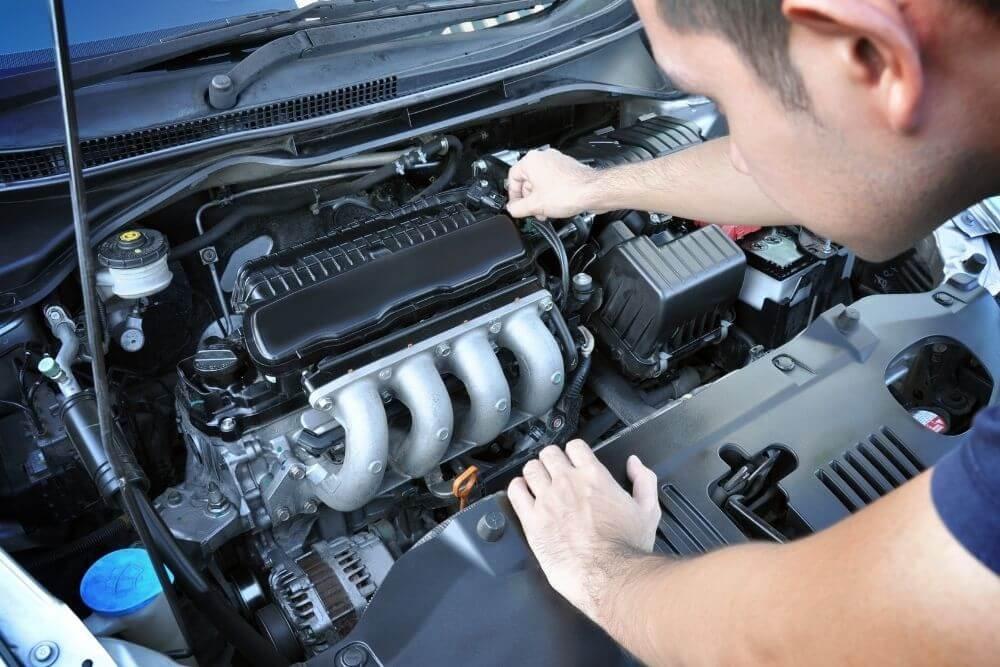Your car is trying to talk to you—are you listening? Strange noises, burning smells, or sudden starting issues are often early warnings of engine trouble. If you’ve recently asked yourself, “Why is my car making a humming noise?” or “Why is my car clicking and not starting?”, you're not alone. In this blog, we’ll break down five common car engine problems, what they sound or feel like, and how to fix them—before a minor issue becomes a major repair bill.
1. Car Belt Noise: That High-Pitched Squeal
One of the most common (and annoying) engine noises is a squealing sound coming from under the hood. This is typically related to your car’s serpentine belt or accessory drive belt.
What it sounds like:
A high-pitched squeal, especially when starting the car or accelerating.
What causes it:
- A worn-out or cracked belt
- Loose or misaligned pulleys
- Faulty tensioner
- Moisture on the belt
Fix:
Inspect the belt for visible wear. If it’s frayed or cracked, it’s time for a replacement. Most modern vehicles need a new serpentine belt every 60,000–100,000 miles. A mechanic can also check pulley alignment and tension.
2. Car Humming Noise: Engine or Tires?
A low car humming noise while driving can be harder to pinpoint, but it usually indicates a mechanical issue that shouldn’t be ignored.
What it sounds like:
A deep hum or drone that gets louder with speed.
What causes it:
- Uneven tire wear or out-of-balance tires
- Failing wheel bearings
- Low transmission fluid
- Faulty driveshaft or differential
Fix:
Start by checking tire tread and pressure. If the noise persists, a mechanic can inspect the wheel bearings and drivetrain. If the sound increases when you turn, wheel bearings are likely the culprit.
3. Car Clicking and Not Starting: Battery vs. Starter
Few things are more frustrating than turning your key and hearing nothing but a clicking sound. The issue of car clicking and not starting is a common and well-documented problem, often with straightforward causes that can be quickly diagnosed.
What it sounds like:
A single or repeated clicking noise when you turn the key, but the engine fails to start.
What causes it:
- Dead or weak battery
- Corroded or loose battery terminals
- Faulty starter motor
- Bad ignition switch or relay
Fix:
If you're dealing with a car clicking and not starting, begin by attempting a jump-start. If the vehicle starts afterward, the battery is likely the culprit. Clean the battery terminals and check for any corrosion or loose connections. However, if the clicking continues even with a charged battery, the issue may lie with the starter motor or ignition system, which should be diagnosed by a qualified mechanic.
4. Why Is My Car Burning Oil?
If you’re constantly topping off your oil or notice blue smoke coming from the exhaust, you might start asking yourself, “why is my car burning oil?” This issue often points to internal engine problems that should be addressed quickly to avoid long-term damage.
What it looks/smells like:
- Blueish smoke from the tailpipe
- Oily smell while driving
- Frequent need to add oil between changes
What causes it:
- Worn piston rings or cylinder walls
- Damaged valve seals
- Clogged PCV (Positive Crankcase Ventilation) valve
Fix:
If you're wondering why is my car burning oil, the first step is to check the oil level and condition. If the oil level drops significantly between changes, it’s likely being burned inside the engine. A mechanic can perform a compression or leak-down test to confirm the issue. Solutions range from a simple PCV valve replacement to more costly engine repairs like replacing worn piston rings or valve seals.
5. General Car Engine Problems: Symptoms You Shouldn’t Ignore
Engine problems aren’t always loud or dramatic. Some start with subtle signs that gradually get worse over time.
Symptoms to watch for:
- Rough idling or shaking
- Poor fuel economy
- Unusual engine smells (burning oil, gas, or coolant)
- Check Engine Light on
- Engine knocking or ticking sounds
What causes it:
- Dirty fuel injectors
- Failing spark plugs or ignition coils
- Engine misfires
- Low oil or coolant levels
- Timing issues
Fix:
The best defense is regular maintenance. Get your engine scanned for error codes using an OBD2 scanner or visit a mechanic. Many small problems—like a bad spark plug—can be fixed affordably before they snowball into costly repairs.
Final Thoughts: Listen to Your Car Before It’s Too Late
Your vehicle gives you plenty of clues before a breakdown occurs. A strange car belt noise, a persistent humming, or a clicking sound when trying to start can each point to a different issue—but all demand attention. Likewise, burning oil is never normal and could shorten the lifespan of your engine if ignored.
✅ Quick Recap:
- Squealing sounds = Belt issue
- Humming noises = Tires, bearings, or transmission
- Clicking + no start = Battery or starter
- Oil loss + blue smoke = Engine burning oil
- Other odd engine behavior = Needs diagnostics
Catching problems early is the best way to save money and stay safe on the road. If you're unsure, don’t guess—get a professional inspection and keep your vehicle running smoothly.

